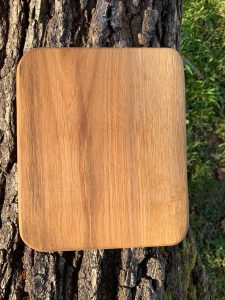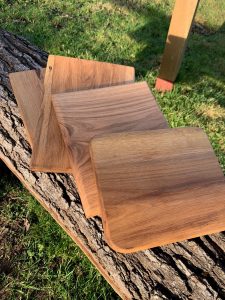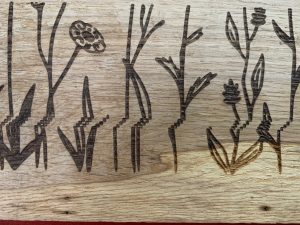Rustic Serving Board – £35
About the workshop



The Wyre Forest is known for its beautiful oak trees, some of which are felled occasionally under a strict management plan. The woodyard team make a variety of items from this oak, from breadboards and benches to bird boxes and pergolas. This is your opportunity to make your own serving board. If you want to leave it plain you will take it away on the day. If you would like your board to sport a design, bring your idea to discuss with Richard, who will engrave it for you afterwards and arrange when it can be collected.
Please Note
- This course is suitable for adult beginners.
- No level of experience or ability is required.
- This workshop is practical by nature, and participants will need to have a reasonable level of fitness and mobility to take part and enjoy the activities.
- This will take place either outside or in our woodyard building. Participants must ensure they are appropriately dressed for the activity. WCLT reserves the right to prevent a participant from taking part in the activity if they are not wearing suitable clothes and footwear.
- If you book a place on a workshop, but are then no longer able to attend, you will not be entitled to a refund. If you would like to transfer your booking to another workshop, we shall make reasonable efforts (subject to availability) to rearrange the booking, but shall not provide any guarantee to this effect.
- WCLT reserves the right to cancel a workshop. This will only happen in exceptional circumstances. Those with pre-booked places will be offered a choice of alternative dates.
More Information
The Wyre Community Land Trust helps manage and conserve the wildlife and habitats of the Wyre Forest and provides opportunities for the local community to learn and engage with the natural environment and heritage crafts.
The Ruskin Club is inspired by John Ruskin (1819-1900), the Victorian artist and social critic, who’s vision for Ruskin Land was for it to be ‘beautiful, peaceful and fruitful’. Ruskin wanted everyone to see and enjoy the unspoiled, inspirational beautify of the world, both in nature and in art. He argued that work should be creative and so he influenced the revival of rural industries and handicrafts.